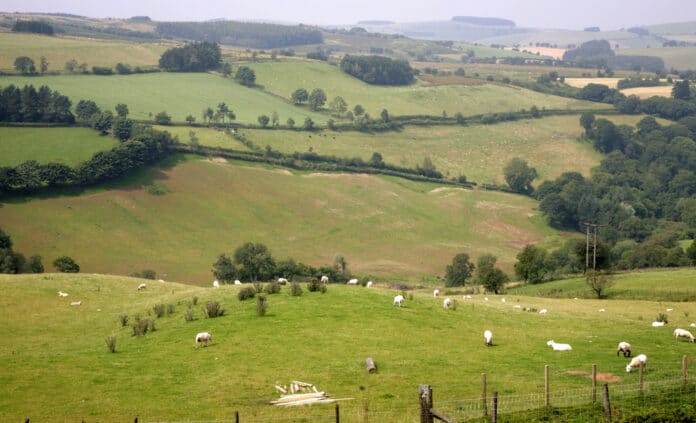At last, we are waking up to the astonishingly oppressive measures in the Police, Crime, Sentencing and Courts Bill, intended to criminalise effective protest. At last, there has been some coverage in the media, though still far too little. The Labour Party is finally feeling some heat, and may find itself obliged to stop appeasing the Daily Mail and vote against the government’s brutal amendments in the House of Lords next week.
But as we focus on this threat, we’re in danger of forgetting something else buried in this monstrous bill. It’s the provision that turns trespass from a civil into a criminal offence, allowing the police to arrest Gypsies, Roma and Travellers (GRT) and confiscate their homes, if they stop in places that have not been designated for them. Under the proposed law, any adult member of the group can be imprisoned for up to three months. Given that authorised sites and stopping places cannot accommodate the GRT people who need them, this is a deliberate attack on a vulnerable minority.
Put these elements together – the curtailment of protest and the persecution of a minority, alongside blatant corruption and barefaced lies, the bypassing of parliament and the new power in the nationality and borders bill enabling the government arbitrarily to remove people’s citizenship – and you see the makings of an authoritarian state. These measures look horribly familiar to anyone cognisant of 20th-century European history. But they also have deep roots in Britain’s peculiar brutalities.
The persecution of mobile people goes back to the 1349 Ordinance of Labourers, which ruled that those deemed to be “vagrants” could be whipped or branded with hot irons. Laws passed in the 16th century decreed that “rogues”, “vagabonds” and other “masterless men” could have their ears sliced in two or bored with a hot poker. If they still failed to return to their own parish (regardless of whether they had one), they could be hanged. A 1554 statute enabled anyone calling themselves “Aegyptians” (Gypsies) to be summarily killed.
Some of the brutal, pre-democratic legislation remains in force in England and Wales today. The 1824 Vagrancy Act is used by the police to arrest rough sleepers, still defined as “rogues and vagabonds”. In 2020, 573 people were prosecuted under this act. Some members of parliament sought to use the Police Bill to repeal this archaic law, but in November the government rejected their amendments.
Now homeless people find themselves in an even worse position. Certain councils, seeking to interpret confusing government rules, have decided that they will offer housing support only to verified rough sleepers. They have advised homeless people to start sleeping on the streets, so they can be picked up by outreach teams, who will then try to find accommodation for them. Of course, they might first be picked up by the police, whereupon they can be prosecuted under the Vagrancy Act. If they try to house themselves, by occupying empty buildings, they can be prosecuted for that as well, because David Cameron’s government turned squatting from a civil into a criminal offence.
Similarly, Gypsies, Roma and Travellers have been deprived of places where they can lawfully stop, and then punished for the absence of provision. According to a study by the Community Architecture Group*, between 1986 and 1993 roughly two-thirds of traditional Travellers’ sites, some of which had been used for thousands of years, were blocked and closed. Then, in 1994, John Major’s Criminal Justice Act granted the police new powers against GRT people stopping without authorisation. With a cruel and perverse twist, the same act repealed the duty of local government to provide authorised sites, and removed the grant aid funding these sites. Partly as a result, a recent study by the group Friends, Families and Travellers found that, of the 68 local authorities they surveyed, only eight had met their own identified need for Gypsy and Traveller pitches. Though there is a long waiting list of GRT households seeking authorised sites and stopping places, official pitches have declined by 8% in the past 10 years.
Now the new bill would enable the police to confiscate people’s vehicles (in other words their homes) on the mere suspicion of trespass. When their homes have been seized and their parents arrested, GRT children are likely to be taken into care. The Police Bill would deprive this minority of everything: homes, livelihoods, identity, culture, even their families.
And, like the homeless people trapped between the Vagrancy Act and the housing qualification, it would put Gypsies, Roma and Travellers in an impossible position. To apply for an official pitch, you must demonstrate “proof of travelling”. But if you don’t have access to official pitches, travelling will put you outside the new law. In other words, it is not a particular behaviour that is being criminalised. It is the minority itself.
The new authoritarianism meshes with a very old one, that harks back to an imagined world in which the peasants could be neatly divided into villeins (good) and vagrants (bad), where everyone knew their place, geographically and socially. Of course, the demonisation of mobile people, whether Roma or asylum seekers, does not extend to the government ministers and newspaper editors who might shift between their pads in London and their second homes in Cornwall or Tuscany. It’s about the rich controlling the poor, as if democracy had never happened.
* Tony Thomson, 1994. A study of site use since 1987. Community Architecture Group.
If you like our content please keep us going for as little as £2 a month https://dorseteye.com/donate/







